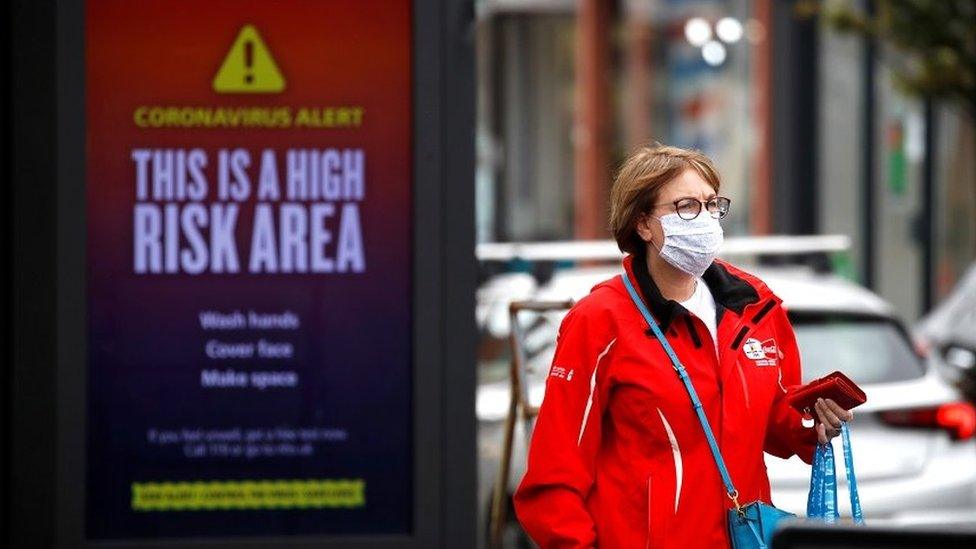Coronavirus: Further Covid-19 restrictions to be announced
- Published
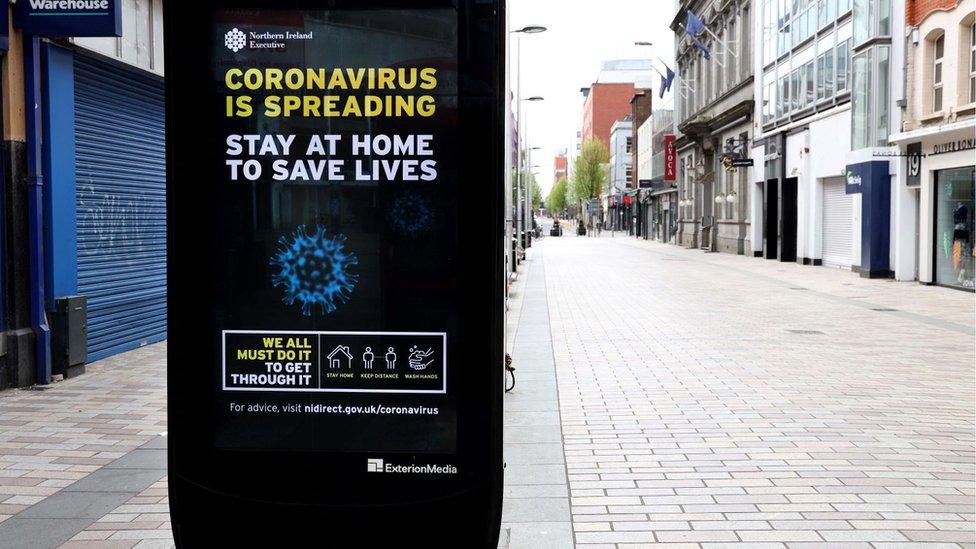
Further restrictions are to be introduced in Northern Ireland, says Michelle O'Neill
Further restrictions are coming in NI and the executive will discuss the timing when it meets on Thursday, the deputy first minister has said.
Michelle O'Neill said ministers face tough decisions over Covid-19 and "all options" are on the table.
Along with First Minister Arlene Foster, she has written an open letter urging people in the north west to stick to tougher Covid-19 rules.
On Tuesday, one further death was recorded by the Department of Health.
According to the department's statistics, 585 people in Northern Ireland have now died with the virus.
It also recorded a further 669 cases of Covid-19 since Monday. In the last seven days, 4,005 people have tested positive in Northern Ireland.
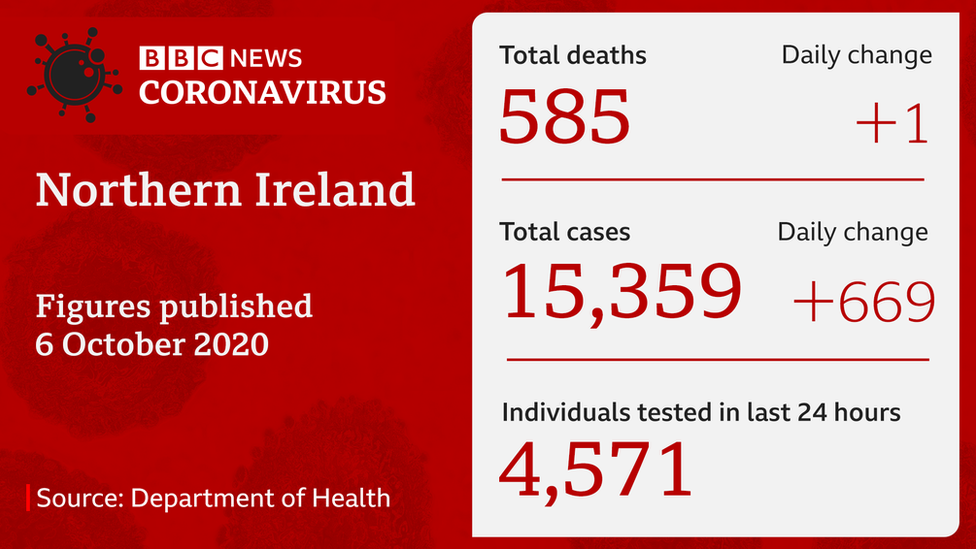
Speaking at Stormont, the Sinn Féin deputy leader said: "I want to avoid a circuit breaker, I want to avoid additional restrictions but unfortunately it appears they are going to be necessary and as for the timing that again will be discussed on Thursday and we'll hopefully be able to say a lot more after that."
A circuit breaker is a short period of tightened restrictions to curb the spread of Covid-19.
Ms O'Neill added that the situation in Newry, Mourne and Down was worrying and said the executive would have to consider whether it was appropriate to move to the same situation as Derry and Strabane, but that had yet to be called.
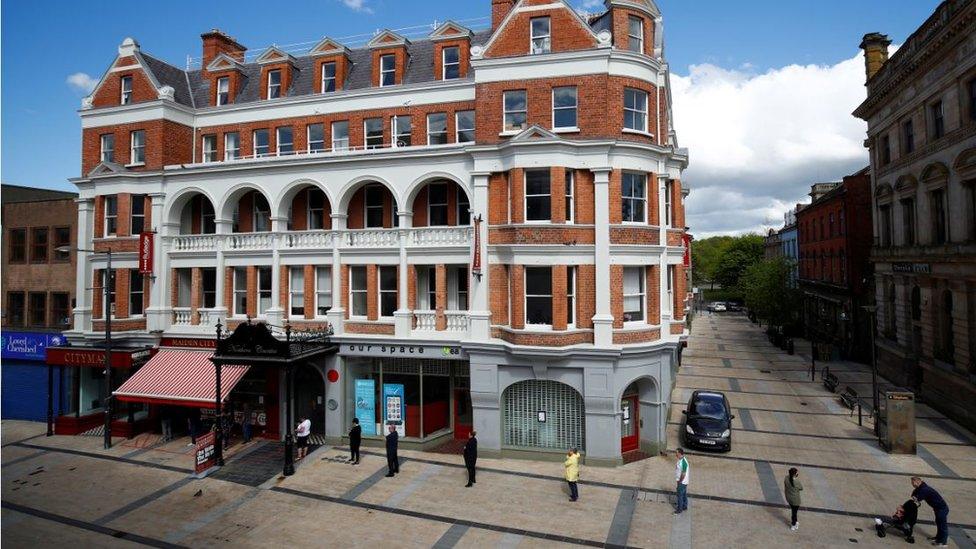
A range of new restrictions have come into force in the Derry and Strabane Council area in an attempt to curb a rise in Covid-19 cases
In their letter, Northern Ireland's first and deputy first ministers said they were worried about the high levels of infection in the Derry and Strabane council area.
The new restrictions, imposed on Monday, "will be tough for many of you but they are necessary", they said.
The council area has the highest rate of cases per 100,000 in NI.
The new measures introduced in the area include pubs, cafes, restaurants and hotels being limited to opening for takeaway, delivery and outdoor dining.
All museums, galleries and cultural attractions are closed and people are being asked to avoid unnecessary travel.
Hospitality businesses face new restrictions in the Derry and Strabane Council area.
In their letter, the leaders also said: "We are already seeing hospital admissions increasing rapidly and we must do everything we can to get on top of the situation.
"We are asking you to work with us to save lives."
They repeated the need for people to limit social contacts, wash hands well and often, keep a safe distance, wear a face covering and download the StopCovid NI app.
Christmas plans
The chief medical officer has said people need to "work diligently" to make sure Christmas can be a safe period, but that it is fair to say "it will be very different".
Dr Michael McBride said while he could not predict what would happen, the Christmas season very much depends on the actions taken in the next few weeks.
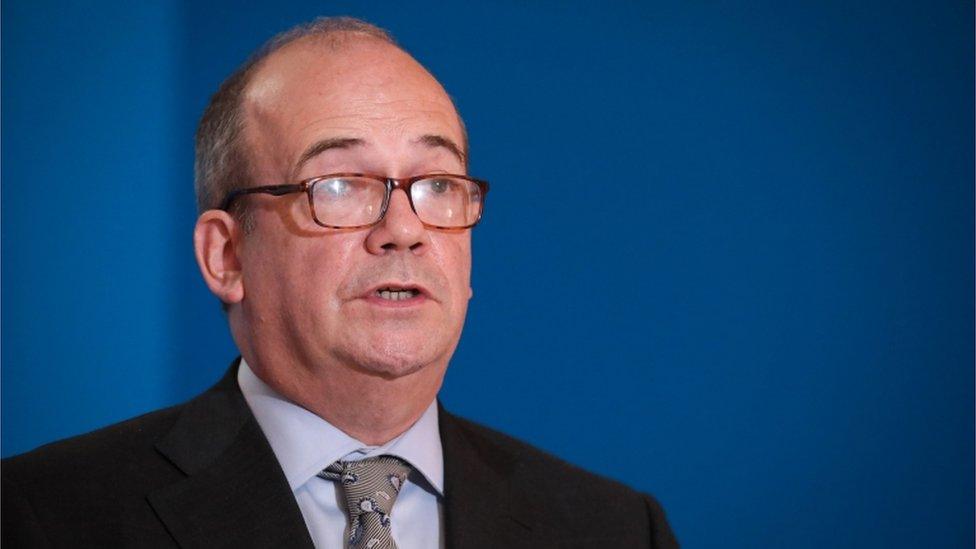
Dr McBride said it was "more likely than not, that further restrictions will be required to get through to spring"
The Chief Scientific Adviser Professor Ian Young said Christmas was a good example of a time when the benefits of allowing societal interaction were clear, and that it would be his wish to be able to allow as normal a Christmas that could be achieved in the context of a global pandemic.
Professor Young said it was critical that the measures already taken are seen to slow the rate of increase in the numbers of cases of the virus in the next week.
Rebuilding plan on pause
Meanwhile, Robin Swann said the health service was facing what was expected to be the "most challenging period in its history".
The health minister said the "daunting challenge" included rebuilding services, managing the ongoing pandemic and addressing winter pressures.
A new Covid-19 surge plan for the coming months has been published by the Department of Health.
Each of the individual trusts have also published their local plans.
But three-month plans for rebuilding services at trust level, after the first Covid-19 response, have been paused, because of the recent sharp increase in case numbers.
The plan is aimed at limiting the impact of Covid-19 on wider health service provision.
It aims to enable services to continue to meet demand apart from dealing with the virus.
The Surge Planning Framework includes the establishment of what the minister is calling a regional cancer "reset cell".
It will allow rapid screening, diagnosis and treatment of cancer patients in a clinically-safe setting.
A statement about rebuilding and stabilising cancer services will be published on Wednesday.
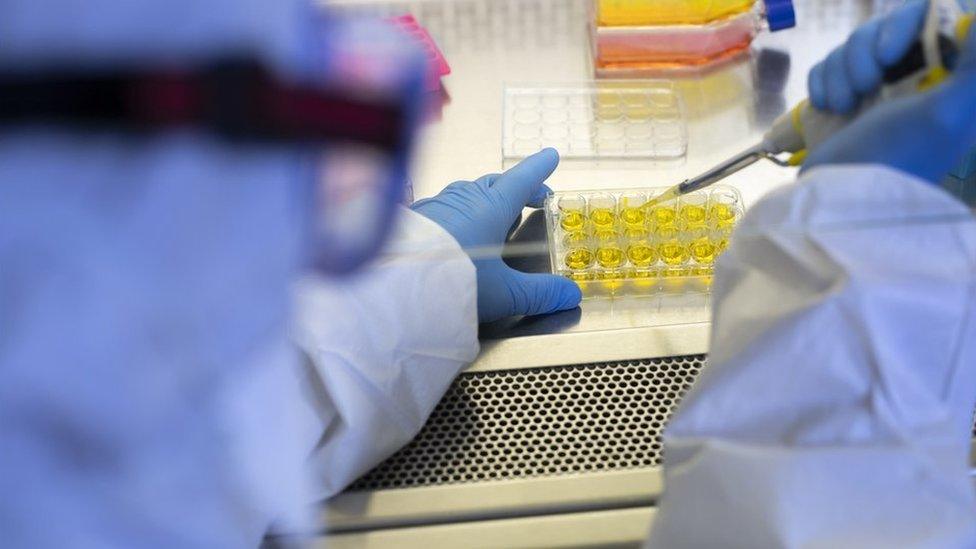
The number of coronavirus deaths recorded by the Department of Health in NI remains at 584
The Tower Block at Belfast City Hospital, which is home to Northern Ireland's first Nightingale facility, will remain a protected site for cancer and other specialist surgery for as long as possible.
The minister said the additional intensive care capacity at the Tower Block would only be needed if there was an extreme surge in demand for Covid-19 patients.
As previously announced, there will be a second Nightingale facility at Whiteabbey Hospital which will be a step-down facility for Covid-19 patients who no longer require intensive critical support but still need hospital care.
Care homes also feature in the framework, to mitigate future transmission in those settings.
The minister told the assembly the rolling programme of testing of care home residents and staff had detected two out of the 28 outbreaks in care facilities currently being overseen by the Public Health Agency.
- Published6 October 2020

- Published5 October 2020
